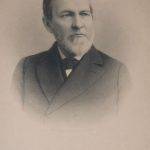The role of imagination in preaching

On the Preparation and Delivery of Sermons, by John A. Broadus (4th ed., Vernon L. Stanfield, editor), chapter 25.
Here is a precis.
The preacher may have the highest intellectual and moral attainments; but these are insufficient without a sanctified imagination.
The imagination sees. It brings history, facts, people, to life. It takes the accumulated effects of experience, observation and knowledge and from them forges something new.
What is the role of imagination in preaching?
1. Imagination is indispensable in the construction of discourse. Familiar words must be put together in fresh ways; otherwise, it is mere copying what is already there. And these words must add up to something that has unity, symmetry, and purpose.
2. ‘Imagination also enables the preacher to clothe ideas in familiar and revealing imagery. It gives thought a definite shape, concrete expression. This excites the imagination of another and thus affects his feelings. Real objects affect the feelings most powerfully, and images more closely resemble real objects than do mer e ideas. If, instead of dwelling upon the idea of benevolence , w e present the image of a benevolent man or a benevolent action, it is much more affecting. And a picture of reality is often more convincing than an argument.’
3. Imagination can enable us to realize and depict what the Scriptures reveal. After all, much of the Bible consists of narrative, so the preacher should be able to describe its scenes and events. We can do this either by thinking ourselves back into a period, or by bringing that period forward to our own time. The historical imagination is a great ally of the preacher. A chastened imagination is also required for us to be able to present the unseen world, eternal realities, to the minds of our hearers.
4. Imagination is also valuable as we seek to gain insight into the thoughts, feelings and experiences of others. Note the example Ezekiel – “I sat where they sat, and remained there astonished among them seven days” (Ezek. 3:15). The preacher who knows and understands people’s motives, temptations and aspirations will be heard by them.
But how may imagination be cultivated?
This is important, because
‘in preaching it is the task of imagination to relate the seen to the unseen, the actual to the ideal, the present to the future, the transient to the eternal.’
1. ‘Study nature and art in order to gain a rich factual knowledg e of the world, together with its treasure of aesthetic and spiritual values.’
2. ‘Study imaginative literature (drama, poetry, fiction) in order to learn not only what people of imagination are able to see, but wher e they see it and how they portray their vision in vivid scenes and gripping imagery.’
3. ‘Keep close to the people of your time, particularly the people of your congregation. Sympathetic imagination is not possible otherwise.’
4. Keep close to the Spirit of God and to the world of eternal realities.
5. Practice! But a fertile imagination must always be kept under control:
‘A person should freely exercise imagination in constructing and inventing, in picturing and illustrating, in reproducing the past and giving vivid reality to the unseen world; but one should always exercise it under the control of sound judgment and good taste, and above all of devout feeling and a solemn sense of responsibility to God.’